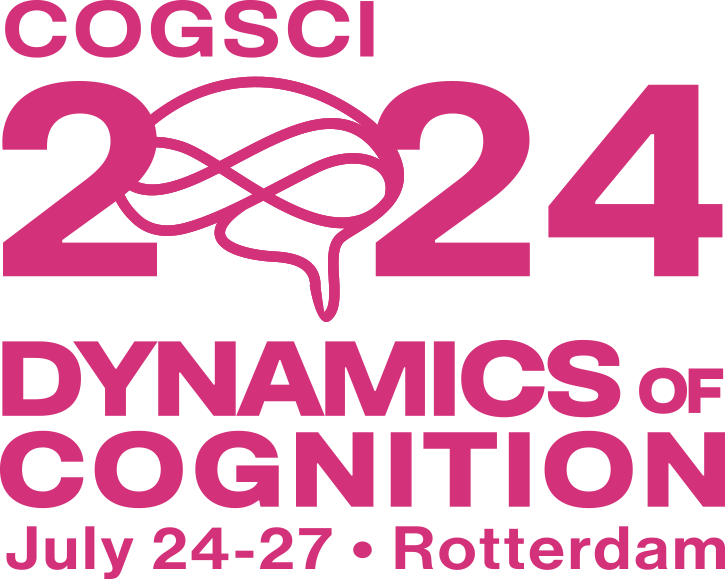CogSci 2024 Dynamics of Cognition
We presented a talk and a poster at the 45th Annual Meeting of the Cognitive Science Society (CogSci 2024), held from July 24-27, 2024, in Rotterdam, the Netherlands.
Oral Presentation
Title: TR.35.04: Detecting Event Construal Shifts in Aspectual Coercion
Authors:
- Ugurcan Vurgun: University of Pennsylvania
- Yue Ji: Beijing Institute of Technology
- Anna Papafragou: University of Pennsylvania
Our talk introduced a novel paradigm for investigating aspectual coercion and its effects on event construal. We explored how telic and atelic sentences, with and without adverbials, influence the way people perceive and interpret events.
Poster Presentation
Title: VP-CC-45: Real-time processing of symmetrical predicates: Semantic categorization over time
Authors:
- Ugurcan Vurgun: University of Pennsylvania
- Heesu Yun: University of Pennsylvania
- Barbara Landau: Johns Hopkins University
- John Trueswell: University of Pennsylvania
Our poster presented a study on the interaction between syntax and lexical semantics in the interpretation of symmetry in language. Using eye-tracking and a novel sorting task, we investigated how people process sentences with symmetrical and non-symmetrical verbs in different syntactic structures. Key findings include:
- Syntax significantly influences symmetry interpretation, with intransitive sentences more often categorized as symmetrical than transitive ones.
- The effect of lexical semantics (verb type) on symmetry interpretation depends on the syntactic context.
- Eye gaze patterns revealed that the interaction between syntax and verb symmetry affects cognitive processing during sentence interpretation.
These findings contribute to our understanding of how language users compute symmetry in real-time and highlight the dynamic interaction between syntax and semantics in language processing.
Both presentations showcase our ongoing work in exploring the cognitive mechanisms underlying language comprehension and event perception. If you’re interested in learning more about these studies or would like to discuss potential collaborations, please don’t hesitate to reach out.

